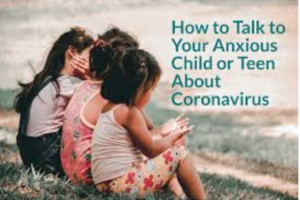08 Apr April 2020 Newsletter

Hello,
I hope you are all managing, dealing with and accepting the new terms and conditions that are currently being put upon our lives. We are very aware of the demands that this situation is putting on you and the effects it will be having on the children, young people, families and staff in your care.
It has been a wonderful and media crazy month at The Blinks/Unravel HQ as we have become the nation’s experts on the psychological impact of coronavirus via the BBC, regional and national radio, and newspapers! So we feel it is important that you, our valued followers, are at the cutting edge of hearing what we think is important at this time, to help you help your loved ones.

This week has seen a huge shift in the pace at which we address the coronavirus issue. As adults, I think we will all agree that this feels almost surreal in what we are experiencing, as if we have become extras in a film we are watching!
It can sometimes feel like we are bombarded with constant negative news wherever we look or listen. Much of the same news is also overplayed on every different media platform possible too: TV, radio, newspapers, internet and social media. So how might our children be feeling about this and how can we support them as best as possible at this time?
For children, this information can be subliminally sinking into their subconscious minds over time and begin to activate more intense feelings of worry, anxiety and distress. We will have all noticed the worries that our children communicate and often wondered where they may have come from. The things children feel mirror the situations they experience and news stories they are hearing, which impact on their emotional brain to trigger feelings of distress.
Never underestimate what our children are hearing. We can’t change the impact coronavirus is having on us all, or some of the distressing things that happen in the world. Our job as parents and carers is to protect our children’s innocence for as long as possible and help their minds develop without unnecessary stress and upset. So, rather than ease the situation over time, through lots of reassurance, challenging worries and reminding our children it is our job to keep them safe, let’s do the right things now as suggested in the top tips we are offering, to prevent future emotional upset.
We are going to do our absolute best to be there for you as much as we can over this difficult time we are all facing together.
Stay safe all of you and remember the little steps that we all do now will help us beat this so that we can return to normality as quickly as possible.
Top tips for talking to children about coronavirus and difficult issues in the news:
- When your children ask questions, answer them. It is important that we don’t give them too much information that could overwhelm them. A good test is to ask them what they know already and then give them just a little bit more information than they already have. This will satisfy their curiosity and longing for facts, but within their correct zone of understanding.
- Use this situation to educate children on the important habits we all need to be practising. A generation of children who learn to wash their hands properly will not only protect us from the coronavirus spread today, but also other illnesses that will spread easily amongst children when they are back in the playground.
- Reduce the amount of time negative news is broadcast to your children.
- Deal with the situation as calmly and rationally as possible under the circumstances. If your anxieties are heightened about the event, then it will cause your children to feel even more worried about the issue in question.
- When tragic events happen, remind children that these are still rare events.
- Remind them of all the wonderful things that happen in the world that the news always doesn’t report positively, i.e. how many people are recovering from coronavirus and the genuine acts of kindness that are being activated to unite us at a time when separation is being asked of us.
- Reinforce all the brilliant professions and services that work so hard to keep us safe and look after us if we do get ill.
- Go over the top with your role as caring, protective parents and carers so that your children feel as secure as possible within their changing world at this time.
Take Care
Andrea
Andrea Chatten
Founder – Unravel
Children’s Emotional & Behavioural Psychologist
unravelsupport.co.uk
 If you would like even more regular information on these kind of issues, please follow us on Facebook and Twitter @unravelsupport
If you would like even more regular information on these kind of issues, please follow us on Facebook and Twitter @unravelsupport


